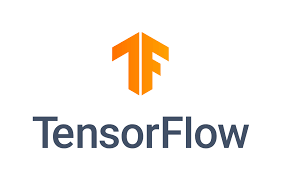 Machine learning with TensorFlow requires vast amounts of data, making scalable object storage an obvious choice for the data platform. In this blog we’ll look at common TensorFlow workloads and why a Cloudian S3-compatible AI data lake is an ideal fit. And finally, how Cloudian HyperStore serves as a universal repository for all AI workloads.
Machine learning with TensorFlow requires vast amounts of data, making scalable object storage an obvious choice for the data platform. In this blog we’ll look at common TensorFlow workloads and why a Cloudian S3-compatible AI data lake is an ideal fit. And finally, how Cloudian HyperStore serves as a universal repository for all AI workloads.
But first, let’s take a quick look at TensorFlow and its storage demands.
TensorFlow in Brief
TensorFlow is an open-source framework developed by the Google Brain team. Primarily used for deep learning applications, it allows developers to create complex neural networks. Launched in 2015, it’s a well-established tool. Google Translate, for example, was developed with TensorFlow, providing a great demonstration of its capabilities.
TensorFlow uses data flow graphs to represent computation, shared states, and the operations that change these states. This architecture enables TensorFlow to offer both flexibility and scalability, making it a go-to for developers and researchers in the field.
Workloads TensorFlow is Used For
TensorFlow excels in handling a variety of AI and machine learning tasks. Some of the common workloads include:
- Image and Voice Recognition: TensorFlow’s ability to process high-dimensional data makes it ideal for training models that can recognize images and voices with high accuracy.
- Natural Language Processing (NLP): From translation to sentiment analysis, TensorFlow’s recurrent neural networks (RNNs) and transformers can model and understand complex language patterns.
- Predictive Analytics: It’s widely used in predictive analytics for time series forecasting, helping businesses anticipate market trends, consumer behavior, and more.
- Autonomous Devices: TensorFlow supports the development of AI that can make real-time decisions, crucial for self-driving cars and automated machinery.
S3 Compatible Storage in TensorFlow Use Cases
These use cases can involve vast amounts of unstructured data, in text, images, or time-series data. Consequently, TensorFlow requires storage solutions that can handle large datasets, provide high throughput and low latency, and offer robust data protection features.
S3-compatible object storage like the Cloudian AI data lake is particularly applicable for TensorFlow workloads. Here’s why:
- Scalability: S3-compatible storage, with its object storage architecture, can store and manage vast amounts of data, scaling alongside TensorFlow’s data requirements.
- Performance: Capitalizing on parallel processing and multi-part uploads, object storage offers high data transfer rates essential for feeding data into TensorFlow’s demanding training algorithms.
- Durability and Availability: Ensuring that data is reliably stored and always accessible is crucial for continuous training and model refinement, something S3-compatible storage can guarantee.
- Flexibility: With S3-compatible storage, TensorFlow applications can interact with storage via standard S3 APIs, making it a versatile option for various AI and machine learning tasks.
Benefits of the Cloudian AI Data Lake for TensorFlow Use Cases
Cloudian HyperStore is a S3-compatible AI data lake that offers numerous benefits for TensorFlow workloads:
- Data Locality: With Cloudian, you can keep your data close to your TensorFlow environment, reducing latency, improving model training times, and eliminating time-consuming data migration.
- Cost-Effectiveness: At costs down to 0.5¢ per GB/mo (including hardware, software and support), Cloudian’s efficient AI data lake can lead to lower costs when compared to traditional storage or cloud.
- Data Sovereignty: The physical location of training data can be a critical factor. That data may include highly proprietary information. Or it may include regulated data such as healthcare records. Cloudian’s on-prem solution maintains sovereignty by maintaining full control over where the data is physically located and who can access it.
- Security: Ensuring compliance and data protection, Cloudian offers military-grade security, encryption and data immutability features which are invaluable for sensitive TensorFlow workloads.
- Multi-Tenancy: Cloudian supports multi-tenancy, allowing different TensorFlow projects or teams to work in isolation, ensuring data is not inadvertently shared or overwritten.
- High Availability: Cloudian’s distributed architecture means there is no single point of failure, ensuring that TensorFlow workloads have continuous access to the data they need.
Cloudian HyperStore: The Universal Data Lake for AI

Beyond TensorFlow, Cloudian HyperStore optimizes AI workloads by supporting popular machine learning frameworks like PyTorch, and Spark ML. These frameworks are specifically designed for parallel training from object storage, providing improved performance and compatibility. Organizations can harness the power of GPUs without storage limitations, maximizing the utilization of expensive and high-demand resources.
The same Cloudian data lake can also be leveraged for streaming tools such as Kafka, observability tools such as Splunk and Cribl, and visualization tools like Tableau. In short, Cloudian HyperStore provides a universal, shared data lake for AI workloads.
Summary
As TensorFlow continues to power more sophisticated AI and machine learning workloads, the demand for compatible, scalable, and secure storage solutions grows. Cloudian’s S3-compatible AI data lake provides the necessary features to ensure that TensorFlow environments are well-supported, highly available, and can operate at the required scale and performance levels.
For more about Cloudian, visit Cloudian.com.
Or try a Free Trial!


